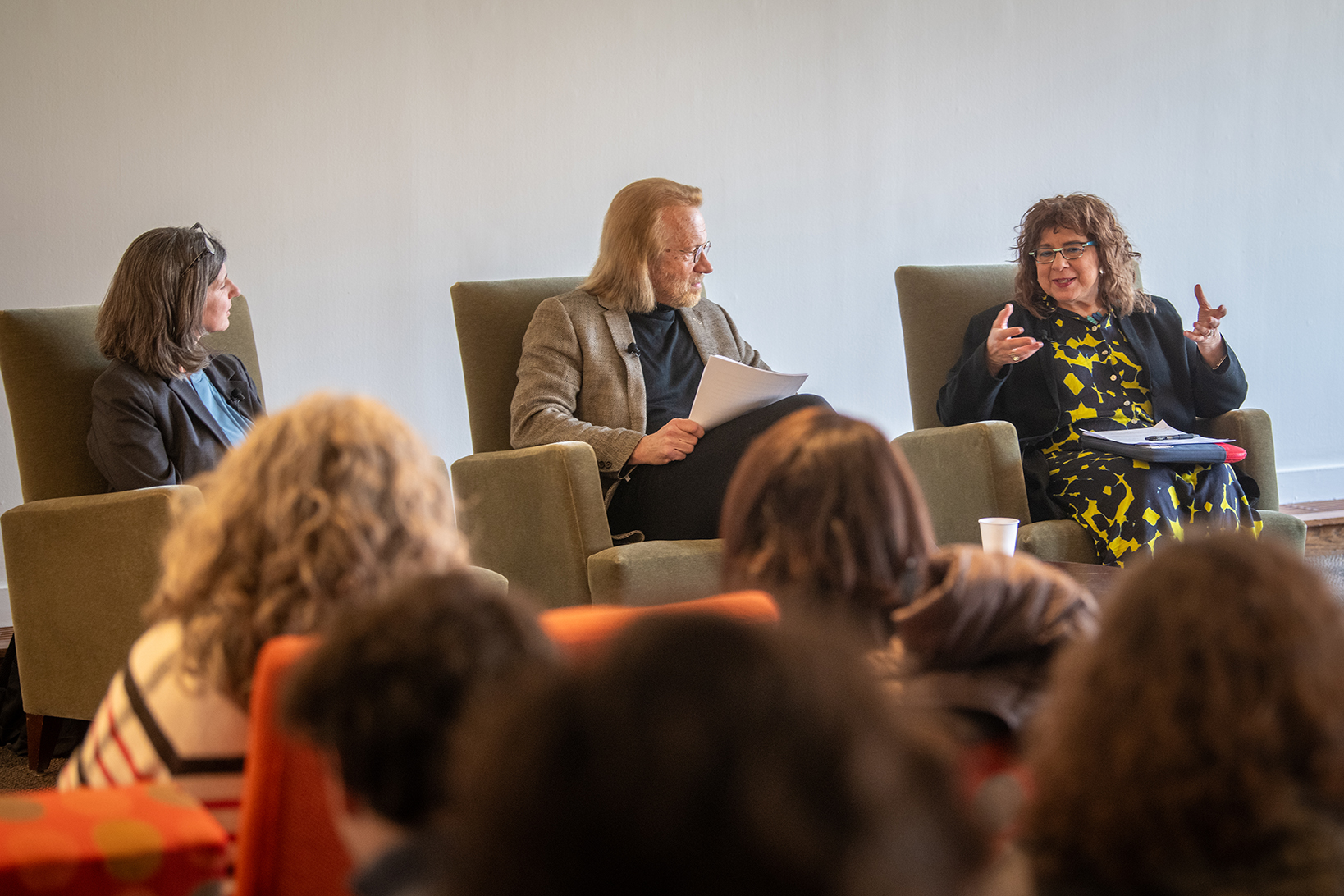‘It’s a hunger that’s never filled’

The disturbing history of antisemitism, its troubling contemporary manifestations, and how lessons of the past can inform strategies for the future were all brought into focus at a March 25 panel convened by the Strassler Center for Holocaust and Genocide Studies in the Higgins Lounge at Dana Commons.
Moderated by Thomas Kühne, director of the Strassler Center and Strassler Chair in the Study of Holocaust History, the panel brought together Lisa Leff, director of the Jack, Joseph and Morton Mandel Center for Advanced Holocaust Studies at the United States Holocaust Memorial Museum and professor of history at American University, and Susannah Heschel, the Eli M. Black Professor and longtime chair of Jewish Studies at Dartmouth College.
The conversation delved into historic episodes of antisemitism, with Leff addressing the hostility that French Jews faced during the Dreyfus Affair in 1894, when French army captain Alfred Dreyfus, who was of Jewish descent, was falsely accused and convicted of treason. Around that time, public sentiment turned against Jewish citizens, who were baselessly accused of conspiring against the nation.
Citing author and professor David Feldman, Leff noted the “reservoir of ideas” — the prejudices and assumptions — that are drawn on over time and incite people to project their broader anxieties, dissatisfactions, and fears through the prism of a Jewish threat, which results in a hostile response.
Leff said that public sentiment in Dreyfus-era France and Hitler’s Germany held that the nation would be strengthened without a Jewish presence, and that Judaism must “be overcome.”
Heschel noted that antisemitism reflects the “glorification of the unethical,” a revolt against the very notion that humans should operate within ethical constraints. Rejecting the universal principles of how we should treat fellow humans and value human life has given rise to antisemitism, colonialism, and racism and constitutes a rejection of enlightened, modern ideals, Heschel said. It’s a societal shift, she added, that is heavily abetted by the internet, whose anonymity fosters the abusive and destructive spread of hateful rhetoric.
Heschel lamented the “culture of sadism” that infuses much of modern society and fuels violent antisemitic behaviors that are repeated in a pernicious cycle. “There is a pleasure that the antisemite receives in being violent toward a Jew,” she said. “Violence is terrible, but sadism is not satisfied. It’s a hunger that’s never filled. … That’s terrifying to me, and for our human society.”
In response to an audience question about whether antisemitism from the right and left can be differentiated, Heschel responded that the emotion driving both sides is “awfully similar” regardless of political orientation, so much so that it’s “difficult to see a difference between the right and left.”
As the panel concluded, Heschel noted that she’s attended a number of lectures at Clark over the years and has always been impressed by the audience turnout.
“Every time I come here, I notice that the room is full, and it’s full of students,” Heschel said. “I want to tell you how much I admire, respect, and envy you here at Clark, and the culture that you’ve fostered. This is why we should be optimistic; this is what it’s all about, ultimately — what we’re trying to achieve. This is an example of what we need.”


